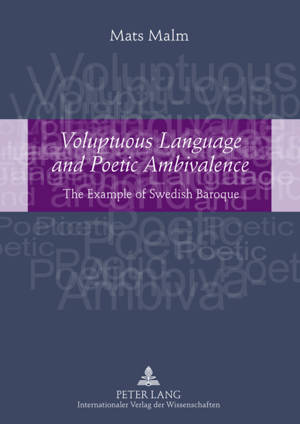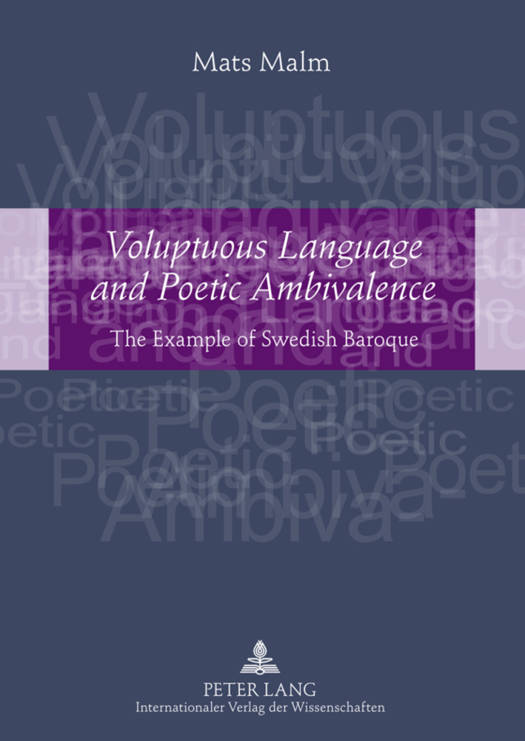
Je cadeautjes zeker op tijd in huis hebben voor de feestdagen? Kom langs in onze winkels en vind het perfecte geschenk!
- Afhalen na 1 uur in een winkel met voorraad
- Gratis thuislevering in België vanaf € 30
- Ruim aanbod met 7 miljoen producten
Je cadeautjes zeker op tijd in huis hebben voor de feestdagen? Kom langs in onze winkels en vind het perfecte geschenk!
- Afhalen na 1 uur in een winkel met voorraad
- Gratis thuislevering in België vanaf € 30
- Ruim aanbod met 7 miljoen producten
Zoeken
Voluptuous Language and Poetic Ambivalence
The Example of Swedish Baroque- Translated by Alan Crozier
Mats Malm
Hardcover | Engels
€ 104,45
+ 208 punten
Omschrijving
Within the rhetorical tradition lay an often unnoticeable, but at times marked suspicion about what was perceived to be effeminate and voluptuous language. Sensual and pleasurable language was thus understood as immoral in the same way as excessive corporeal pleasures were considered detrimental, and the notion of voluptuous language could result in a tension concerning the delights of poetry. This study develops ways to analyse how this poetic ambivalence affected poetry in early modern Sweden, where the notion of voluptuous language became especially strong, not only influencing poetry but also connecting to political and religious self-understanding. Treating this in connection with the media conditions of the time, the study attempts to clarify the phenomenon of 'Baroque'.
Specificaties
Betrokkenen
- Auteur(s):
- Uitgeverij:
Inhoud
- Aantal bladzijden:
- 332
- Taal:
- Engels
Eigenschappen
- Productcode (EAN):
- 9783631592991
- Verschijningsdatum:
- 24/10/2011
- Uitvoering:
- Hardcover
- Formaat:
- Genaaid
- Afmetingen:
- 148 mm x 210 mm
- Gewicht:
- 529 g

Alleen bij Standaard Boekhandel
+ 208 punten op je klantenkaart van Standaard Boekhandel
Beoordelingen
We publiceren alleen reviews die voldoen aan de voorwaarden voor reviews. Bekijk onze voorwaarden voor reviews.









